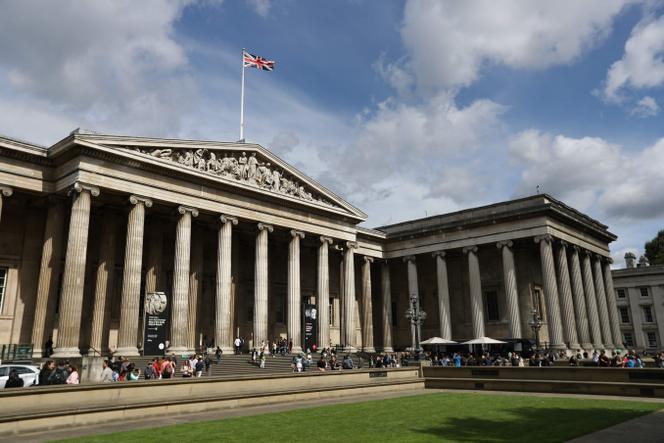


"We're not just a museum for the world. We're a museum in the world, and of the world: a museum that speaks to our common humanity," reads the British Museum's latest activity report, published on Tuesday, July 11. "Our curators protected Ukrainian heritage and our galleries showcased Ukrainian treasures. Our conservators pieced ancient glass vessels back together after the horrific explosion in Beirut."
This high praise omits the thorny problem that has been embarrassing the London museum for the past year: Peter Higgs, chief curator of Greek and Roman antiquities, is suspected of having stolen almost 2,000 archaeological objects (out of the 8 million inventoried), mainly small jewels and semi-precious stones, over the past two decades. He then sold them on eBay for sometimes derisory sums. It's a stain on the reputation of the venerable institution and auction site, which in 2006 set up a team to monitor online auctions to prevent illegal sales of British antiques.
According to the British newspapers The Times and The Daily Telegraph, which uncovered the story in mid-August, a Danish dealer, Ittai Gradel, sounded the alarm two years ago. In an initial letter sent to the museum on February 28, 2021, which Le Monde was able to consult, he pointed out, with photos, that an intaglio that had appeared on the market at the time came from the museum's collections. By cross-checking sources, Gradel had realized that he himself had purchased 70 jewels since 2016 from the same eBay seller, a certain Paul Higgins, a resident of Hastings, in the south of England. When digging around, the merchant discovered that the name linked to his PayPal account was, in fact, Peter Higgs. Gradel wrote to the British Museum that what is worrying is he sold the objects for derisory prices. This makes him fear that this is "only the tip of a much larger iceberg."
For months, and despite several reminders, the London museum ignored his warnings and even offered Higgs a promotion, before discreetly dismissing him in July. Some items have already been recovered, British Museum chairman George Osborne told the BBC, and an independent inquiry has been launched to clarify the internal malfunctions. "In every store, there are cameras everywhere. Does this mean that it's easier to steal jewelry from the British Museum's storerooms than a pack of cigarettes from a corner store ?" asked Gradel when contacted by telephone.
The affair is jeopardizing the museum's fundraising campaign to finance its major project to restore the building and completely reorganize the collections, which is estimated by The Art Newspaper at over €1 billion. The scandal has meant that its director, the German art historian Hartwig Fischer, who has been in post since 2016, had no choice but to resign on August 25, acknowledging in a statement that his museum "did not react as it should have to the warnings of 2021 and the now fully visible problem." When contacted, he declined to answer Le Monde's questions.
You have 64.96% of this article left to read. The rest is for subscribers only.
